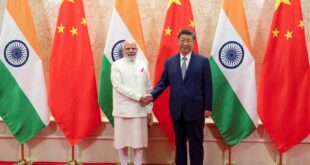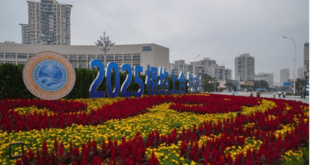Eng. Saleem Al-Batayneh
For the first time in my life, I genuinely feel that Jordan is in grave danger—on the verge of being lost. Even the most optimistic among us cannot ignore a creeping sense of fear in the face of rapidly unfolding regional dynamics. These changes now pose an existential threat to Jordan’s stability, security, and long-term viability.
The greatest challenge facing Jordan today is not just political or economic—it’s one of understanding. We face a cognitive gap in reading and interpreting the forces reshaping the region. That is why I join those who have called for urgent national dialogue. We need honest, sober conversations to understand what lies ahead in a region that no longer controls its own destiny—a region where maps are redrawn, and spheres of influence are redistributed.
We are in a murky, dangerous transitional phase—perhaps one of the most critical junctures for Middle Eastern states, especially those tied to peace treaties with Israel. In such fragile circumstances, miscalculation is a luxury we cannot afford. What once seemed fantastical, even catastrophic, is today a plan in progress—and tomorrow, it will be our reality.
Jordan is undoubtedly in the circle of concern. Hour by hour, developments spiral around us, almost always for the worse. And while the outcome remains hidden in the fog of geopolitics, history shows that Damascus won’t be the last Arab capital to fall. Before it came Mogadishu, Baghdad, Beirut, Tripoli, Sana’a, and Khartoum. This isn’t conjecture—it’s echoed in a recent April 12, 2025 policy paper by the U.S. Council on Foreign Relations.
From Gaza to the West Bank to Syria, signs of realignment are everywhere:
-
Syrian-Israeli talks are quietly being initiated.
-
Multi-trillion-dollar deals are on the table.
-
Traditional allies have halted support for Jordan.
-
The U.S. is backing a new political order in Syria, potentially withdrawing from 13 military installations near Jordan’s borders—without any assurance of Syrian army stabilization.
This would create a security vacuum along the Jordan-Syria-Iraq triangle—one that could reshape Jordan’s national security posture in unprecedented ways. These are the headlines we should be tracking and decoding. History teaches us that the challenges we fail to contain today will become unmanageable tomorrow.
The region is walking a tightrope between deterrence and explosion. We’re living through a historical turning point, one that is birthing a new regional order—driven by emerging Sunni powers and directly supported by the United States. These powers are redrawing maps and assigning roles through long-term strategy and careful political calculus.
New players will emerge, filling the vacuum left by outdated structures and personalities. The aim? To replace exhausted ideologies and radical movements with modern, internationally legitimate actors who can cooperate with the global system.
And yet, Jordan appears lost in interpretation. We’re no longer bystanders—we are the scene itself. It’s deeply troubling that so few seem to recognize this, and fewer still seem prepared to act. The question remains: where is Jordan in the evolving geopolitical game? What is our strategic position—and how do we respond?
We are the immediate neighbors of Palestine—linked not just by geography, but by history. We cannot separate ourselves from the reverberations of what happens across the river. What unfolded in Gaza has set a new precedent that will, inevitably, ripple into Jordan’s domestic fabric. After Gaza, national boundaries will be redrawn not with geography, but with political will.
We must put aside distractions and acknowledge the risks enveloping us—from faraway capitals across oceans to shifting fault lines next door. In the lexicon of global politics, there’s a sobering term: “small states.” Jordan, despite its rich legacy, is one of them.
Silence is no longer an option. We have, to a large extent, authored our own vulnerability. We failed to build a cohesive political movement with intellectual grounding. We did not construct a regional political architecture that would amplify our voice on the global stage. And we abandoned even the most basic outlines of a national project.
Crises continue unabated. Regional stability remains elusive. The map of interests-based alliances is ever-changing, still in its infancy. What’s coming next, geostrategically, may demand an exchange of roles—or even a shift in governance models for many states in the region.
The contours of Jordan’s predicament are not difficult to trace. Everyone interprets Jordan’s diminishing role in their own way—but those who claim absolute truth are mistaken. We still lack an early-warning system. Nothing has been resolved. The files remain open, and the proverbial elephant is still in the room.
From the lessons of history, we must recalculate. Betting against the tide of change, resisting evolution—this weakens Jordan. Either we rise to meet the moment, or we remain stuck in a space where political and economic marginalization consume us. Will we learn from the past? Or will we allow Jordan to become a testing ground for failed experiments?
Jordan can only be protected by wisdom, awareness, and bold thinking—not by clinging to narrow calculations. We must either create a new political and strategic reality—or continue to stumble through confusion, waiting for the unknown. Rescuing Jordan from its temporal regression demands an honest confrontation with the truth—unfiltered, unpolished, and stripped of the denial we’ve grown accustomed to.
We have accepted “less” in everything. We’ve been content with minor roles and shallow ambitions. This acceptance has fed a national mood of despair and disorder.
And yet, Jordan still possesses the ingredients to matter. Our strategic value is not lost. But unlocking it requires political will, decisive action, and unconventional leadership. It requires bold intervention and painful reform—of the kind only possible when one truly, and deeply, believes that Jordan is worth it.
 Geostrategic Media Political Commentary, Analysis, Security, Defense
Geostrategic Media Political Commentary, Analysis, Security, Defense





